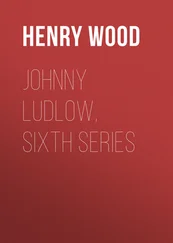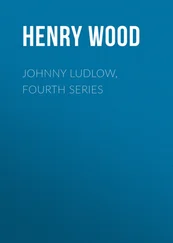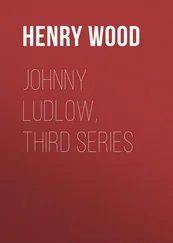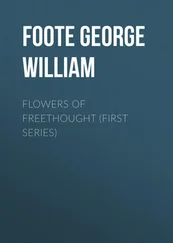Henry Wood - Johnny Ludlow, First Series
Здесь есть возможность читать онлайн «Henry Wood - Johnny Ludlow, First Series» — ознакомительный отрывок электронной книги совершенно бесплатно, а после прочтения отрывка купить полную версию. В некоторых случаях можно слушать аудио, скачать через торрент в формате fb2 и присутствует краткое содержание. Жанр: foreign_prose, literature_19, foreign_antique, на английском языке. Описание произведения, (предисловие) а так же отзывы посетителей доступны на портале библиотеки ЛибКат.
- Название:Johnny Ludlow, First Series
- Автор:
- Жанр:
- Год:неизвестен
- ISBN:нет данных
- Рейтинг книги:4 / 5. Голосов: 1
-
Избранное:Добавить в избранное
- Отзывы:
-
Ваша оценка:
- 80
- 1
- 2
- 3
- 4
- 5
Johnny Ludlow, First Series: краткое содержание, описание и аннотация
Предлагаем к чтению аннотацию, описание, краткое содержание или предисловие (зависит от того, что написал сам автор книги «Johnny Ludlow, First Series»). Если вы не нашли необходимую информацию о книге — напишите в комментариях, мы постараемся отыскать её.
Johnny Ludlow, First Series — читать онлайн ознакомительный отрывок
Ниже представлен текст книги, разбитый по страницам. Система сохранения места последней прочитанной страницы, позволяет с удобством читать онлайн бесплатно книгу «Johnny Ludlow, First Series», без необходимости каждый раз заново искать на чём Вы остановились. Поставьте закладку, и сможете в любой момент перейти на страницу, на которой закончили чтение.
Интервал:
Закладка:
“The only son of his mother, and she was a widow!”
There had to be an inquest. It did not come to much. The most that could be said was that he died from a kick at football. “A most unfortunate but an accidental kick,” quoth the coroner. Tod had said that he saw the kick given: that is, had seen some foot come flat down with a bang on the side of little Hearn’s head; and when Tod was asked if he recognized the foot, he replied No: boots looked very much alike, and a great many were thrust out in the skirmish, all kicking together.
Not one would own to having given it. For the matter of that, the fellow might not have been conscious of what he did. No end of thoughts glanced towards Barrington: both because he was so ferocious at the game, and that he had a spite against Hearn.
“I never touched him,” said Barrington, when this leaked out; and his face and voice were boldly defiant. “It wasn’t me. I never so much as saw that Hearn was down.”
And as there were others quite as brutal at football as Barrington, he was believed.
We could not get over it any way. It seemed so dreadful that he should have been left alone to die. Hall was chiefly to blame for that; and it cowed her.
“Look here,” said Tod to us, “I have a message for one of you. Whichever the cap fits may take it to himself. When Hearn was dying he told me to say that he forgave the fellow who kicked him.”
This was the evening of the inquest-day. We had all gathered in the porch by the stone bench, and Tod took the opportunity to relate what he had not related before. He repeated every word that Hearn had said.
“Did Hearn know who it was, then?” asked John Whitney.
“I think so.”
“Then why didn’t you ask him to name him!”
“Why didn’t I ask him to name him,” repeated Tod, in a fume. “Do you suppose I thought he was going to die, Whitney?—or that the kick was to turn out a serious one? Hearn was growing big enough to fight his own battles: and I never thought but he would be up again at supper-time.”
John Whitney pushed his hair back, in his quiet, thoughtful way, and said no more. He was to die, himself, the following year—but that has nothing to do with the present matter.
I was standing away at the gate after this, looking at the sunset, when Tod came up and put his arms on the top bar.
“What are you gazing at, Johnny?”
“At the sunset. How red it is! I was thinking that if Hearn’s up there now he is better off. It is very beautiful.”
“I should not like to have been the one to send him there, though,” was Tod’s answer. “Johnny, I am certain Hearn knew who it was,” he went on in a low tone. “I am certain he thought the fellow, himself, knew, and that it had been done for the purpose. I think I know also.”
“Tell us,” I said. And Tod glanced over his shoulders, to make sure no one was within hearing before he replied.
“Wolfe Barrington.”
“Why don’t you accuse him, Tod?”
“It wouldn’t do. And I am not absolutely sure. What I saw, was this. In the rush, one of them fell: I saw his head lying on the ground. Before I could shout out to the fellows to take care, a boot with a grey trouser over it came stamping down (not kicking) on the side of the head. If ever anything was done deliberately, that stamp seemed to be; it could hardly have been chance. I know no more than that: it all passed in a moment. I didn’t see that it was Barrington. But—what other fellow is there among us who would have wilfully harmed little Hearn? It is that thought that brings conviction to me.”
I looked round to where a lot of them stood at a distance. “Wolfe has got on grey trousers, too.”
“That does not tell much,” returned Tod. “Half of us wear the same. Yours are grey; mine are grey. It’s just this: While I am convinced in my own mind that it was Barrington, there’s no sort of proof that it was so, and he denies it. So it must rest, and die away. Keep counsel, Johnny.”
The funeral took place from the school. All of us went to it. In the evening, Mrs. Hearn, who had been staying at the house, surprised us by coming into the tea-room. She looked very small in her black gown. Her thin cheeks were more flushed than usual, and her eyes had a great sadness in them.
“I wished to say good-bye to you; and to shake hands with you before I go home,” she began, in a kind tone, and we all got up from the table to face her.
“I thought you would like me to tell you that I feel sure it must have been an accident; that no harm was intended. My dear little son said this to Joseph Todhetley when he was dying—and I fancy that some prevision of death must have lain then upon his spirit and caused him to say it, though he himself might not have been quite conscious of it. He died in love and peace with all; and, if he had anything to forgive—he forgave freely. I wish to let you know that I do the same. Only try to be a little less rough at play—and God bless you all. Will you shake hands with me?”
John Whitney, a true gentleman always, went up to her first, meeting her offered hand.
“If it had been anything but an accident, Mrs. Hearn,” he began in tones of deep feeling: “if any one of us had done it wilfully, I think, standing to hear you now, we should shrink to the earth in our shame and contrition. You cannot regret Archibald much more than we do.”
“In the midst of my grief, I know one thing: that God has taken him from a world of care to peace and happiness; I try to rest in that. Thank you all. Good-bye.”
Catching her breath, she shook hands with us one by one, giving each a smile; but did not say more.
And the only one of us who did not feel her visit as it was intended, was Barrington. But he had no feeling: his body was too strong for it, his temper too fierce. He would have thrown a sneer of ridicule after her, but Whitney hissed it down.
Before another day had gone over, Barrington and Tod had a row. It was about a crib. Tod could be as overbearing as Barrington when he pleased, and he was cherishing ill-feeling towards him. They went and had it out in private—but it did not come to a fight. Tod was not one to keep in matters till they rankled, and he openly told Barrington that he believed it was he who had caused Hearn’s death. Barrington denied it out-and-out; first of all swearing passionately that he had not, and then calming down to talk about it quietly. Tod felt less sure of it after that: as he confided to me in the bedroom.
Dr. Frost forbid football. And the time went on.
What I have further to relate may be thought a made-up story, such as we find in fiction. It is so very like a case of retribution. But it is all true, and happened as I shall put it. And somehow I never care to dwell long upon the calamity.
It was as nearly as possible a year after Hearn died. Jessup was captain of the school, for John Whitney was too ill to come. Jessup was almost as rebellious as Wolfe; and the two would ridicule Blair, and call him “Baked pie” to his face. One morning, when they had given no end of trouble to old Frost over their Greek, and laid the blame upon the hot weather, the Doctor said he had a great mind to keep them in until dinner-time. However, they ate humble-pie, and were allowed to escape. Blair was taking us for a walk. Instead of keeping with the ranks, Barrington and Jessup fell out, and sat down on the gate of a field where the wheat was being carried. Blair said they might sit there if they pleased, but forbid them to cross the gate. Indeed, there was a standing interdiction against our entering any field whilst the crops were being gathered. We went on and left them.
Half-an-hour afterwards, before we got back, Barrington had been carried home, dying.
Читать дальшеИнтервал:
Закладка:
Похожие книги на «Johnny Ludlow, First Series»
Представляем Вашему вниманию похожие книги на «Johnny Ludlow, First Series» списком для выбора. Мы отобрали схожую по названию и смыслу литературу в надежде предоставить читателям больше вариантов отыскать новые, интересные, ещё непрочитанные произведения.
Обсуждение, отзывы о книге «Johnny Ludlow, First Series» и просто собственные мнения читателей. Оставьте ваши комментарии, напишите, что Вы думаете о произведении, его смысле или главных героях. Укажите что конкретно понравилось, а что нет, и почему Вы так считаете.












